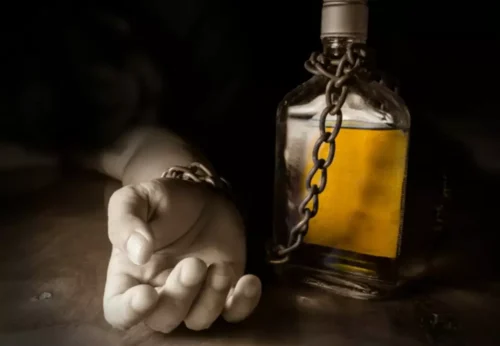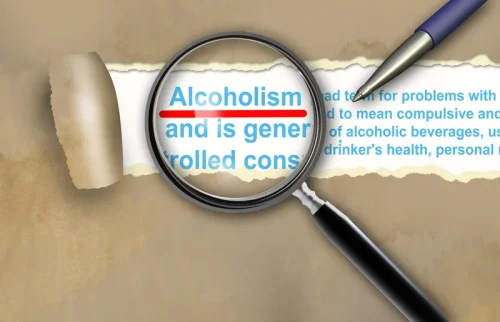23 Sep Stopping a Slip From Becoming a Relapse

But if they still have drugs left, they decide to go ahead and deplete their supply before quitting again. Rather than labeling oneself as a failure, weak, or a loser, recognizing the effort and progress made before the lapse can provide a more balanced perspective. For Jim and Taylor, this might involve acknowledging the months of sobriety and healthier lifestyle choices and understanding that a single incident does not erase that progress. Relapse is viewed by psychologists as more of a process than a singular event. A relapse is the result of a series of events that occur over time, according to psychologist and researcher Alan Marlatt, Ph.D.
For Immediate Treatment Help Call 800-526-5053
If they only measure their success by abstinence, then any deviation becomes an indication of failure, and they get right back on the roller coaster (the abstinence violation effect; [4]). Real success comes when people see and feel improvements in their lives that they could not achieve when misusing substances. What the treatment community desperately needs is a true paradigm shift away from these simple numbers and the all-or-nothing mentality they create. So does this mean that even a brief lapse must lead to a full-blown relapse? Does it mean a person must continue to drink or drug until the use returns to the initial level? You have not unchanged all that you have changed in your life to support your recovery.
- The term relapse may be used to describe a prolonged return to substance use, whereas lapsemay be used to describe discrete,…
- Cognitive resistance weakens and a source of escape takes on appeal.
Is Trazodone Habit-Forming Or Addictive?
This viewpoint that the deviation is a total failure is then used as a further justification to continue using or doing the addictive behavior. I have had clients that expressed after having one sip of a drink, they felt so badly and shameful for failing that this was the permission giving thought that getting drunk wouldn’t be any worse. After 5 years of sobriety, someone had a glass of champagne at a wedding and then felt that they had wasted their 5 years of sobriety and would have to start over anyway, so they ended up going on a binge for the next 18 months for fear of having to “start over”. As a result, it’s important that those in recovery internalize this difference and establish the proper mental and behavioral framework to avoid relapse and continue moving forward even if lapses occur. As a result of stress, high-risk situations, or inborn anxieties, you are experiencing negative emotional responses. Emotional relapses can be incredibly difficult to recognize because they occur so deeply below the surface in your mind.

Physical Relapse
Once a person begins drinking or taking drugs, it’s hard to stop the process. Good treatment programs recognize the relapse process and teach people workable exit strategies from such experiences. Relapse is most likely in the first 90 days after embarking on recovery, but in general it typically happens within the first year. Recovery is a developmental process and relapse is a risk before a person has acquired a suite of strategies for coping not just with cravings but life stresses and established new and rewarding daily routines. Principles of relapse prevention have been used in the treatment of sex offenders.
It includes thoughts and feelings like shame, guilt, anger, failure, depression, and recklessness as well as a return to addictive behaviors and drug use. Despite the fact that relapse can be all-consuming, it does not have to be. It may be a single occurrence where someone decides to use the substance again. A single AVE instance can result in a long-term relapse for the individual. Knowing the different stages of relapse and how to avoid them is therefore crucial.


This article discusses the concepts of relapse prevention, relapse determinants and the specific interventional strategies. Lindsey Rodriguez is a third-year doctoral student in the Social Psychology Program at the University of Houston, USA. Marlatt’s technique keeps us focused on the present rather than on the past.
How The Abstinence Violation Effect Impacts Long-Term Recovery
In general, the longer a person has not used a substance, the lower their desire to use. Along with the client, the therapist needs to explore past circumstances abstinence violation effect and triggers of relapse. Also, the client is asked to keep a current record where s/he can self-monitor thoughts, emotions or behaviours prior to a binge.
- An individual who feels guilt often uses substances to ease their guilt, which can lead to AVE.
- When one returns to substance use after a period of abstinence, they experience a negative cognitive and affective reaction known as an abstinence violation effect in psychotherapy.
- Another is to carefully plan days so that they are filled with healthy, absorbing activities that give little time for rumination to run wild.
- Again, many experts agree that a one-time lapse into using drugs or alcohol does not equally relapse.
- • Build a support network of friends and family to call on when struggling and who are invested in recovery.


Sorry, the comment form is closed at this time.